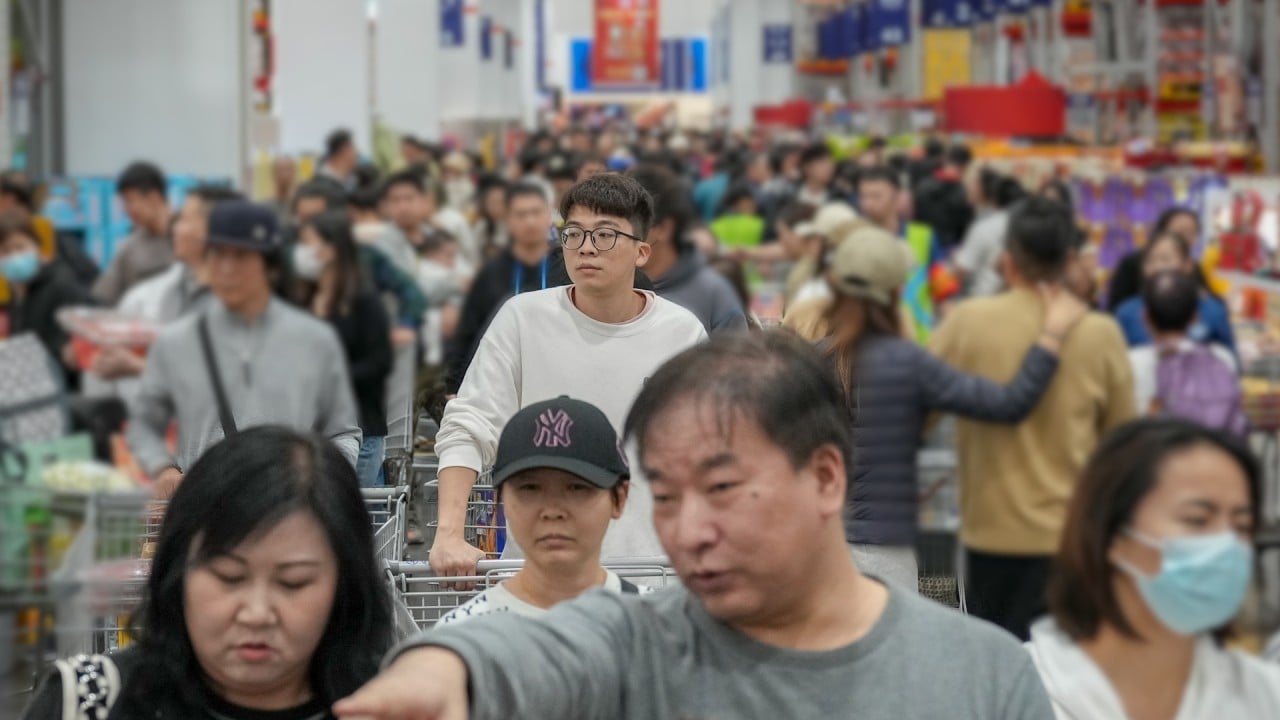
Hong Kong SMEs’ second-quarter business confidence shaky as consumer spending remains a concern
- The Standard Chartered Hong Kong SME Leading Business Index rose 3.6 points quarter on quarter to 47.3, but was below last year’s level of 52.8
- Retail-oriented SMEs worried by the increase in spending by Hongkongers on the mainland
Confidence among small and medium-sized enterprises (SMEs) in Hong Kong’s business climate has improved slightly, but it remains well below the year-earlier level when confidence soared on the back of the border reopening, according to a survey from the Hong Kong Productivity Council (HKPC) on Tuesday.
Small businesses are particularly worried by a shift in consumer spending by mainland visitors to the city, and Hongkongers rushing across the border to buy cheaply priced necessities, the survey showed.
The Standard Chartered Hong Kong SME Leading Business Index for the second quarter rose 3.6 points to 47.3 from the previous quarter, nearly the same as the fourth quarter of 2023. It was, however, below the 52.8 reading in last year’s second quarter.
A level below 50 indicates a negative outlook and above 50 a positive outlook.

“The survey does not necessarily represent a ‘higher for longer’ [optimism]” partially because of the short-term favourable sales and profit performance of SMEs, said Kelvin Lau, senior economist for Greater China at Standard Chartered.
While Lau noted that Hong Kong’s economy was “moderately recovering”, it was “too early to call for a sustained return” in SMEs’ optimism for the overall economy.
The Standard Chartered-sponsored survey polled more than 800 SMEs on the overall business environment for the current quarter.
SMEs however “remain cautious towards the spending outlook by local residents and inbound tourists”, Lau said.
The retail industry recorded the lowest index level (43.2) among the three largest industry groups. Another domestic-oriented industry that did not perform well was accommodation and food services, which registered the biggest quarter-on-quarter drop (4.5 points) among all sectors.
During the recent Easter break, Hong Kong residents made nearly 1.76 million outbound trips. About 1.51 million, or 86 per cent, of them were to the mainland.
“With the risk of these domestic drivers fading further after a strong initial post-Covid rebound, pressure will be on the external sectors to start taking up some of the slack soon,” Lau said.
The survey also included findings about SMEs’ views on the measures unveiled in the budget in February.
About 90 per cent of SMEs said at least one of the measures – including loan and funding support, tax reduction and the withdrawal of cooling measures in the property sector – could boost the overall economy.
HKMA launches one-stop platform to help SMEs affected by new travel trend
The SMEs’ recruitment sentiment fell marginally, while the global economy, business conditions, profit margin, and investment sentiment sub-indices rebounded to the level seen in the fourth quarter of last year.
The global economy sub-index, after three consecutive quarters of decline, rebounded the most at 9.1 points, which Lau said aligns with mainland China’s “solid” economic start to the year.
Of the 11 industry indices, information and communications and real estate recorded the biggest increases in confidence at 13.8 points and 11.2 points, respectively.
This was thanks to the tailwind provided by policy support, including Beijing’s latest push for new drivers for the economy and the complete lifting of cooling measures in Hong Kong’s property market, Lau said.


